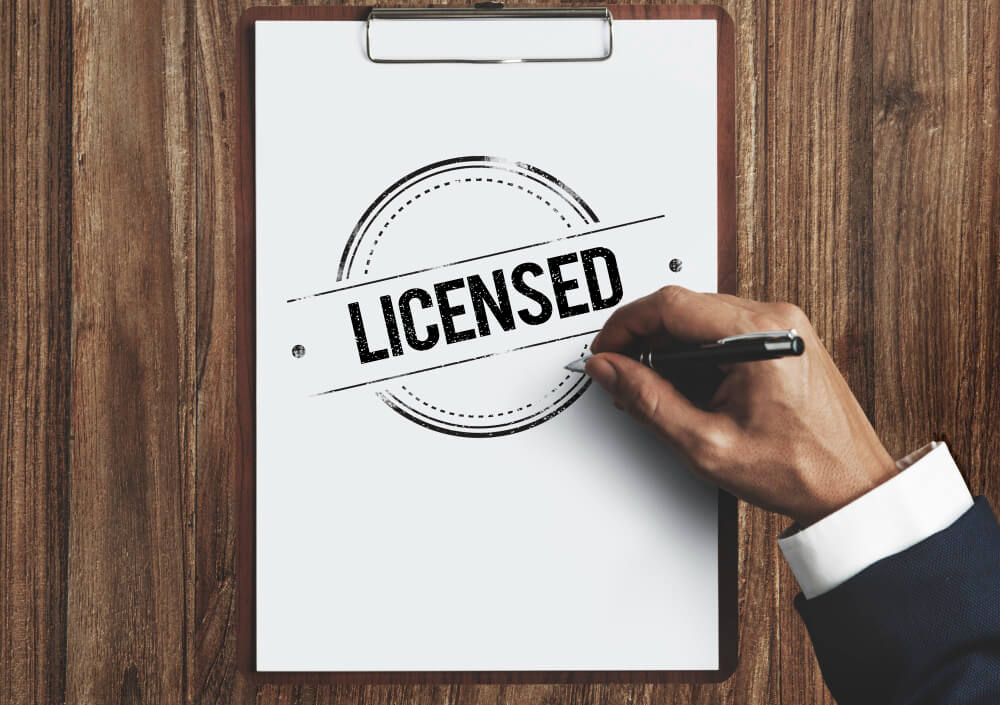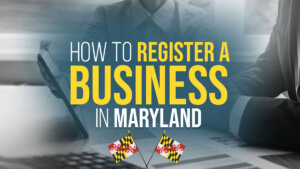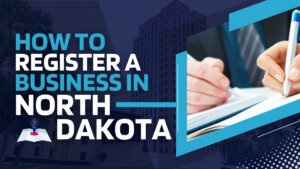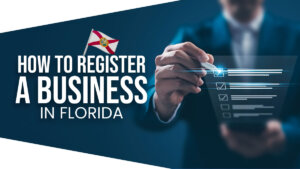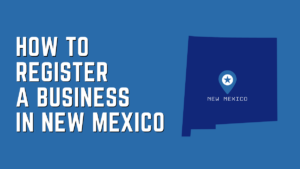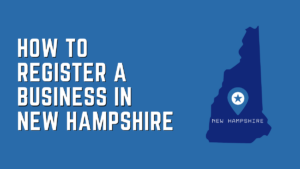Business licenses and permits grant you the right to legally operate your business in the U.S. However, there are various types of business licenses which are issued by federal, state, and local agencies. Learn which business licenses you need and how to get a business license.
How To Get a Business License
Each business license type has its own set of application requirements. Still, there is a general process which you need to complete no matter what kind of license you are applying for. Follow the steps below to get the right licenses for your business.
How To Get a Business License in 5 Steps
Step 1: Find Out What Business Licenses You Need
Learn what licenses & permits you need based on your business structure, location & industry type
Step 2: Gather License Requirements
Collect all the necessary documents & requirements
Step 3: Submit Your License Application
Fill out and submit your application for each business license type
Step 4: Wait for Approval
Submit missing requirements (if any) & follow up on the approval of your application
Step 5: Maintain Your Business Licenses
Renew your business licenses & permits before they expire
Step 1: Find Out What Business Licenses You Need
First of all, discover which kinds of licenses are appropriate for the business you are establishing, based on the following factors:
- Business Structure: The structure type which you select when you start your business will determine your registration requirements. Some popular business structures are sole proprietorship, partnership, corporation, and limited liability company (LLC).
- Business Location: The state, county, and city where you are planning to set up your business will have an impact on which local, state, and federal regulations are applicable to you.
- Industry Type: Depending on the industry you are part of, you may need special licenses and permits to prove that you and your team are qualified to sell particular products or provide certain professional services.
Figure out the types of business licenses and permits you need by conducting research. You can explore the websites of government agencies to find useful information and download forms. In case you have questions regarding the application process, you may contact the agencies directly via phone, email, or contact form. On top of this, you can also check out government websites for helpful tips on how to start your business.
Step 2: Gather License Requirements
Collect all the essential documents and meet all the necessary requirements before you apply for a business license. While the exact paperwork may vary depending on the license types you need, here are some common requirements for most licenses:
- Business description, plans, and location overview
- Sales tax permit and other tax documents
- Corporate records
- Ownership and management documents
- Filing fees
You may also be required to provide other requirements if you belong to some business industries:
- Proof of professional qualifications or training credentials for you and key members of your team
- Financial statements
- Insurance records
- Surety bonds
Step 3: Submit Your License Application
Apply for licenses and permits with the appropriate government agencies. Fill out and submit an application form for each business license you are pursuing. Carefully read and follow the instructions since every form has its own prerequisites. Although you can submit most forms online, some forms should be sent via mail or fax. Plus, certain forms must be notarized or signed by several parties.
Step 4: Wait for Approval
Stand by while your license application is still pending since the waiting period can vary. While some agencies approve business licenses right away, others could take several weeks or even months to grant approval. Feel free to reach out to the agency to follow up on your approval status after you have waited for a reasonable period of time. In case an agency contacts you regarding your incomplete application, send the requirements you lack immediately. After all, missing prerequisites can cause delays in the approval process.
Step 5: Maintain Your Business Licenses
Once you successfully gain your business licenses and permits, make sure to maintain each one so you can keep operating your business. Most licenses are only valid for a set period of time, which is why you need to renew them before they expire. Fulfill all the renewal requirements so you can continue to be authorized to run your business.
What Are the Types of Business Licenses
There are different types of business licenses and permits that you can apply for, depending on the kind of business you are setting up. Discover what these license types are and whom they are recommended for. Find out where and how to register each license and how much the application fees typically cost.
1. General Business License
A general business license is a government document that gives you permission to start a business in a certain jurisdiction. In general, it is commonly issued in the form of a tax registration certificate. You need to apply for a general business license with the city, county, or state agency that is responsible for business registrations. Submit the license application form, fees, and other requirements to get this license.
Recommended For: Most business owners in the U.S.
Estimated Fee: Approximately $50 or higher. Exact amount depends on the state, county, or city.
2. DBA License
The “doing business as” (DBA) license allows you to operate your business under a different brand name than your legal business name. While your business name is your personal name by default if you establish a sole proprietorship or partnership, you have the option of selecting a fictitious or trade name to rebrand your business.
You can register your DBA name with the county clerk’s office or the state government. In addition to this, certain states require DBA name filings to be made public to protect the interests of consumers. Take note that you don’t need to file a DBA if you are operating under your own name and if you own an LLC or corporation with a registered business name.
Recommended For: Business owners who wish to operate a sole proprietorship or partnership under a trade name
Estimated Fee: Ranging from around $5 to $100. Exact amount depends on the county or state.
3. Seller’s Permit
The seller’s permit is a kind of business license that grants you authority to collect sales tax on the taxable products and services you offer to customers. Once you acquire a seller’s permit, you are responsible for remitting the taxes you collected to the state. You must submit an application to your state’s Department of Revenue to get a seller’s permit. Take note that five states do not impose sales tax, including Alaska, Montana, Delaware, Oregon, and New Hampshire.
Recommended For: Business owners who provide taxable products and services to consumers
Estimated Fee: Free in most states. Ranging from around $12 to $100 in some states.
4. Federal Business License
The federal business license gives you permission to run a business which involves activities regulated by a federal agency. You should get a federal business license if your business is related to agriculture, broadcasting, investment consultancy, alcohol, and meat product preparation.
Government agencies that issue federal business licenses include the U.S. Department of Agriculture (USDA), Federal Communications Commission (FCC), Securities and Exchange Commission (SEC), Alcohol and Tobacco Tax and Trade Bureau (TTB), and U.S. Food and Drug Administration (FDA). Each agency has its own prerequisites so you must contact the relevant agency to discover the requirements for your business.
Recommended For: Business owners who belong to certain industries, such as meat product preparation, alcohol, investment, agriculture, and broadcasting.
Estimated Fee: Depends on business industry and issuing agency
5. Zoning Permit
A zoning permit allows you to operate your business in a particular location, given the type of venture you own and the industry you belong to. After all, different municipalities have their own rules regarding which kinds of businesses can run in certain spots. You need to get a zoning permit for your business from your county or city zoning department. You are required to follow the zoning guidelines in your area to gain a zoning permit.
Recommended For: Business owners running a brick-and-mortar store, distribution center, or manufacturing facility
Estimated Fee: Varies widely depending on the state and the size of commercial property. Ranges from around $50 to $1,500.
6. Building Permit
The building permit gives you permission to construct a new building or to remodel an old building. You or your contractor must apply for a building permit from the building department of your city or town. In order to get a permit, you will typically be required to submit your site, structural, and architectural plans. Plus, you might need to provide information regarding safety protocols, accessibility, electrical, plumbing, and occupancy.
Recommended For: Business owners who plan to start a new construction project or to make major changes to existing structures
Estimated Fee: Widely varies based on size, complexity, and location of the construction project. Ranges from around $400 to $2,200+.
7. Occupational License
An occupational license grants you the authority to provide certain professional services through your business. In order to get an occupational license, you need to prove to the board or other certifying bodies in your industry that you gained the necessary skills and knowledge in your field through proper training and education.
Some industries require you to take and pass a written or practical exam, while others expect you to complete training modules or educational courses. Keep in mind that the actual requirements will depend on the type of occupational license you are pursuing.
Recommended For: Business owners and team members who practice specialized occupations, such as medicine, healthcare, law, accounting, real estate, electrical work, plumbing, and cosmetology
Estimated Fee: Based on the type of occupational or professional license. Starts at $60.
8. Health Permit
A health permit allows you to operate your business by verifying that you have met the safety standards of the health department. You need to get a health permit if your business is related to food preparation and distribution or if it involves direct body contact with customers. If your business falls under these criteria, you must apply for a health permit with your county health department. You will typically be required to undergo facility inspections, as well as to complete certification courses based on your type of business.
Recommended For: Business owners of restaurants, food delivery services, beauty salons, massage parlors, and nail spas
Estimated Fee: Widely varies based on the business industry, size, and location. Ranges from around $100 to $3,000+.
9. Special State License
A special state license gives you permission to sell certain types of products, such as alcohol, gasoline, firearms, and lottery tickets. You need to apply for this type of license to prove that you have met state-regulated standards related to the sale of these items. Some examples of state agencies that issue special state licenses are the Alcoholic Beverage Control (ABC) and state gambling agencies. The requirements differ based on the type of license you are applying for and the issuing agency you are coordinating with.
Recommended For: Business owners who offer goods like alcohol, lottery tickets, firearms, and gasoline for sale to consumers
Estimated Fee: Depends on the business industry and issuing agency.
What You Need To Know About Business Licenses
Do I Need a Business License?
Yes. You need a business license to operate a business venture in the U.S., whether you are planning to build a small startup or a large corporation. It’s important for you to figure out which business licenses you should apply for because there is no one-size-fits-all solution when it comes to licenses and permits. You can determine the type and amount of business licenses you need based on the size, industry, and location of your business.
Should I Apply for a Business License Independently or With Professional Help?
It is possible for you to apply for a business license independently. After all, there are forms which you can download and information which you can read on official government websites. However, it is still a smart choice for you to consult with experts to ensure that your business meets all the regulatory requirements of the local, state, and federal government.
You can hire an accountant and lawyer if you need professional assistance in setting up a small, mid-sized, or large business. Aside from this, you also have the option of utilizing one of the best LLC services if you want to start your own LLC with minimal hassle.
What Do I Need To Do To Start a Business Aside From Getting a Business License?
There are other vital tasks that you need to complete aside from getting licenses and permits if you are starting your own business, such as:
- Get an EIN: Apply for an Employer Identification Number (EIN) if you plan to hire employees or to offer products and services through your business. You can get an EIN online from the Internal Revenue Service (IRS).
- Create a Bank Account: Open a business bank account to store your business funds and facilitate financial transactions. Consolidating your business resources in a dedicated account makes it easier for you to monitor your sales, profits, and expenses. You can also open a business account with EIN only.
- Hire a Registered Agent: Enlist the services of a registered agent if you are establishing an LLC or corporation. A registered agent is a person or entity authorized to receive legal correspondence and documents on behalf of your business.
Frequently Asked Questions (FAQs) for How to Get a Business License
Learning how to get a business license makes it simpler for entrepreneurs like you to establish a business. Discover the answers to common questions about business licenses and permits.
Bottom Line on How to Get a Business License
Applying for business licenses is one of the first steps to starting your own legitimate business. We hope that this guide helped you figure out which types of business licenses and permits you need as an entrepreneur. Bookmark this page so you can quickly review how to get a business license.
 Sections of this topic
Sections of this topic
